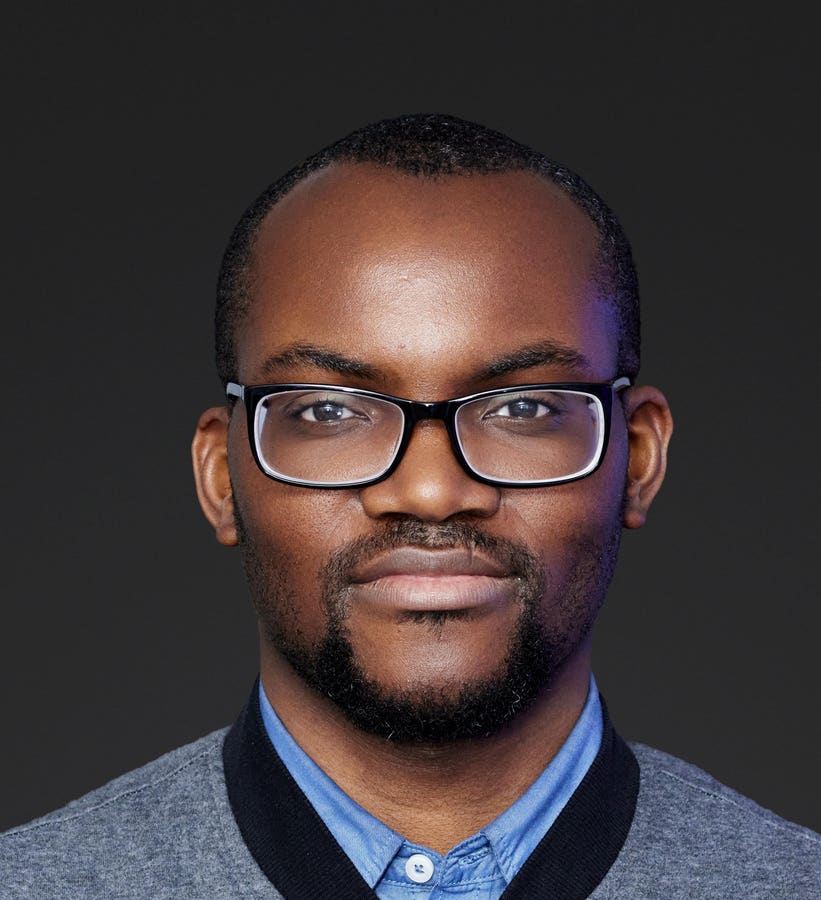You might call David Owoyemi a hybrid entrepreneur—an entrepreneur by acquisition, as well as the head of startups he’s launched from scratch.
Getting Started
Owoyemi got a degree in accounting in his native Nigeria in 2008, working briefly for a company there afterwards. Then in 2011 he got a call from a cousin who needed his help preparing his books. With that, he decided to set himself up as an accountant providing services to entrepreneurs. But he soon realized that his clients needed a lot more advice—marketing, legal, financing. “I wasn’t moving the needle for them that much,” he says. So he started up another company called Venture Hub Africa to help entrepreneurs get connected to the resources they needed.
Ten years later, Owoyemi made another big move: He wanted to expand and, in 2021, moved to the U.S., where he could increase his network and where he also had family. He ended up getting a scholarship to study at Babson College, which has a strong emphasis on entrepreneurship.
But when he arrived he had a surprise. “Many people have the perception that the U.S. has everything, “ he says. He began to notice, however, that entrepreneurs in the U.S. faced problems similar to the challenges Nigerian entrepreneurs encountered—struggling to get access to critical resources. “Many don’t have the network to access the capital and professional services they need,” he says. In other cases, like Nigerians, they didn’t know what was available. He points to discussions he had with officials at CDFIs, institutions meant to connect entrepreneurs with funding, who told him that many small business owners weren’t even aware that those opportunities existed.
Entrepreneur by Acquisition
To do more research, Owoyemi decided to survey as many entrepreneurs as he could. One support organization offered to help him distribute the survey through its newsletter. Not long after, he got an unexpected call from Havell Rodrigues, co-founder of New Majority Capital , a new effort aimed at addressing persistent wealth gaps by helping people interested in entrepreneurship navigate a process called Entrepreneurship through Acquisition—buying an existing business customers, revenues, and a track record.
It seemed like an unanticipated gift. Owoyemi had long thought about buying a business someday. “But I thought it was for someone more privileged,” he says. “But these were existing businesses that are proven and stable, where you don’t have to reinvent the wheel,” he says. By making some simple improvements, he perceived that the acquired company could easily be improved and expanded. Plus, he liked the prospect of helping older entrepreneurs see that their legacy would remain. And he figured if the experience was successful, it would add another strategy to draw on when advising other entrepreneurs.
The New Majority program was 10 weeks, during which Owoyemi learned the basics of how to look for, assess, and buy an existing business. By April, 2024 he found the right business–DLTC Landscape, a landscaping company in Bridgeport, Ct.
There was a hitch: As you might expect, coming from abroad, his progress was slowed because he lacked a strong credit score in the U.S.. That‘s when he realized he needed a U.S. partner. He found a fellow member of his church who was the comptroller at a nonprofit, and he came on as CFO. They raised $2.1 million to purchase the business, about half of which was from a $1.4 million SBA-backed loan.
The business Owoyemi bought was actually two companies—a landscaping firm and a seed services company. They merged it into one and streamlined operations. The result: In the last nine months of 2024, the company made the same profit that the businesses made in the 12 months of 2023, even though revenue was lower.
A Tech Platform for Global Entrepreneurs
Before he even moved to the U.S., Owoyemi had got to thinking about the huge population of young people throughout Africa and the possibility of developing a platform to help make connections to resources at scale. Then after starting at Babson and seeing the obstacles entrepreneurs in the U.S. faced, he started pondering about whether his idea for a tech platform would also work in the U.S., or even globally. To that end, in 2023, Owoyemi formed a separate company called Venture Nation and built a minimum viable product. ‘”We’re looking to do more in the future,” he says.
Read the full article here











